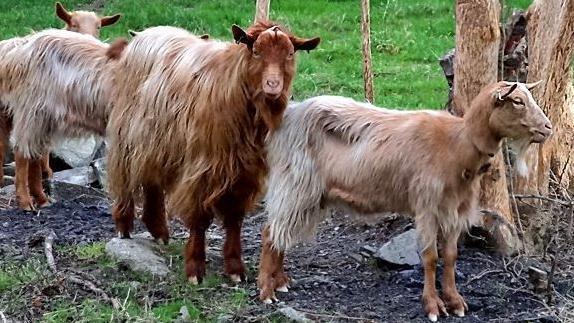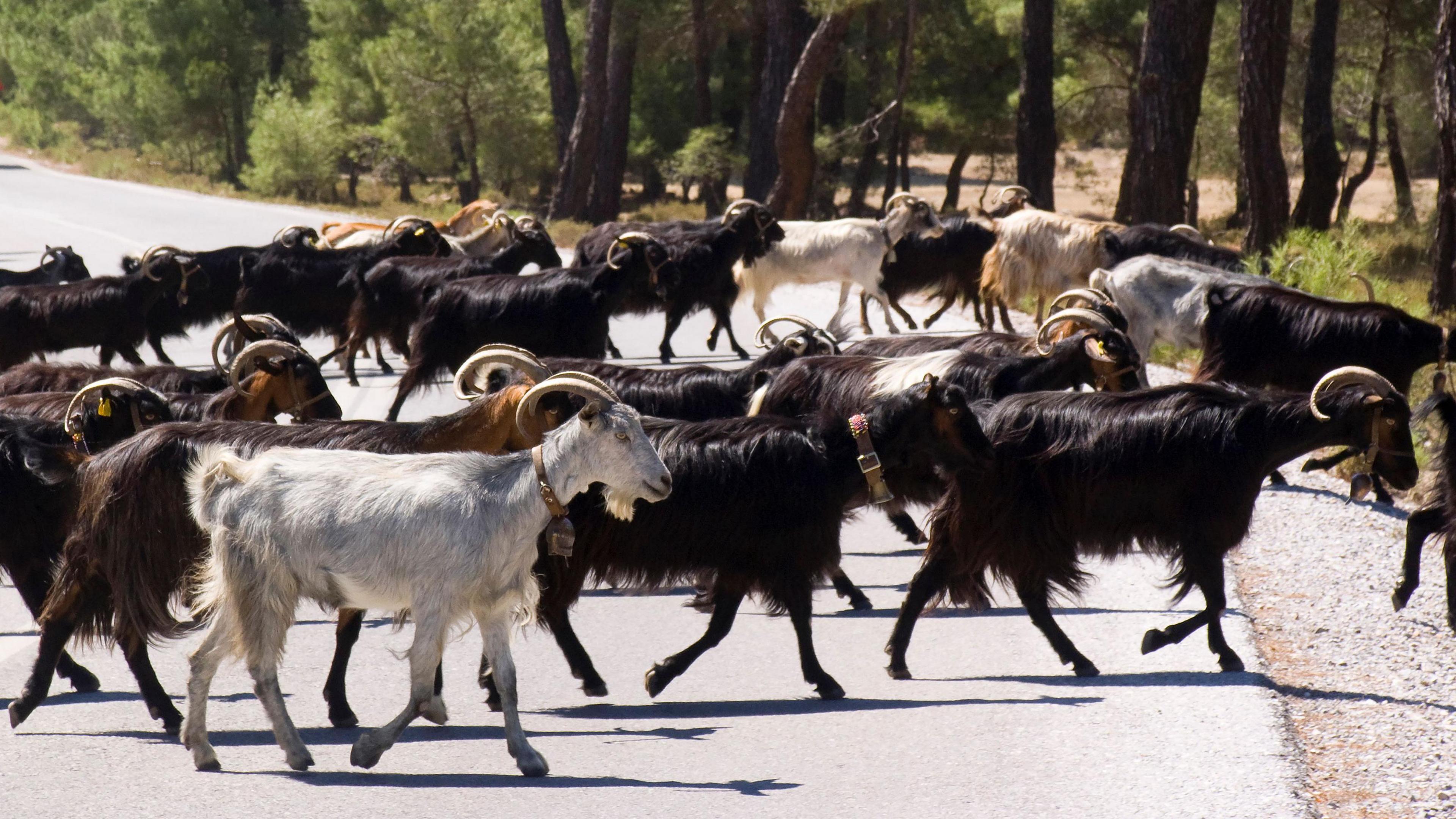Ban on some EU imports to prevent 'goat plague'

Similar measures have been introduced in England, Scotland and Wales
- Published
Importing certain sheep and goat products from the European Union to the Isle of Man has been banned to prevent the highly contagious infection known as "goat plague".
The strict controls, which include postal imports of meat, cheese and milk, are to protect Manx animals from peste des petits ruminants (PPR)
The virus has killed hundreds of sheep and goats in mainland Europe in recent months, but it does not affect people.
The government's chief veterinary officer Amy Beckett said an outbreak on the island could be "damaging" for the farming sector.
Restrictions are already in place that prevent the importation of live sheep and goats from affected areas.
'Strict measures'
Dr Beckett said the ban meant people should not bring back sheep or goat products to the island from the affected EU countries, which re currently Romania and Greece.
Residents visiting EU countries not affected by PPR must also not carry sheep or goat products back to the Isle of Man "unless commercially produced and packaged to EU standards”.
The measures were designed to prevent an outbreak on island, which could lead to animal suffering and harm the farming industry, she added.
Environment, Food and Agriculture Minister Clare Barber said: “The strict measures have been introduced to help limit the spread of the disease and will remain in place until PPR no longer presents a risk to Manx sheep and goat populations."
Similar measures have also been introduced in England, Scotland and Wales.
PPR was first reported in Ivory Coast in 1942 and has since spread globally.
Why not follow BBC Isle of Man on Facebook, external and X, external? You can also send story ideas to IsleofMan@bbc.co.uk
Related topics
- Published30 July 2024
